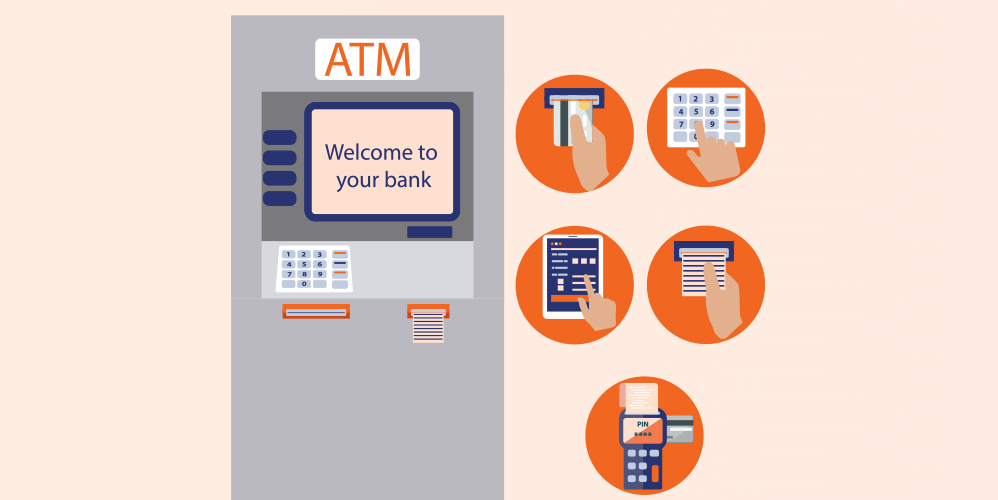
Demat Account for Mutual Funds: Your Comprehensive Guide
28 Feb 2024

Table of Content
In today's dynamic financial landscape, managing your investments efficiently is crucial to building a secure financial future. One avenue that has gained immense popularity in recent years is the demat account for mutual funds. This innovation has revolutionized the way investors handle their mutual fund investments, offering convenience, security, and a streamlined approach to portfolio management. In this comprehensive guide, we will explore everything you need to know about how to open a demat account for mutual funds and understand the associated charges. So, whether you're a seasoned investor or just starting your investment journey, read on to discover the benefits and intricacies of this essential financial tool.
What is a Demat Account?
A Demat account, short for "Dematerialized account," is an electronic account that holds various securities such as stocks, bonds, and mutual fund units in dematerialized form. This means that the physical certificates of your securities are held by a depository participant (DP) on your behalf. It was introduced in India in 1996 to replace the cumbersome paper-based system of holding securities. With a Demat account, you no longer need to possess physical certificates to prove your ownership of these assets. Instead, your holdings are securely recorded in electronic form within your Demat account statement.
Mutual Funds and Demat Accounts
Now, let's explore the relationship between mutual funds and Demat accounts. Mutual funds are a popular investing choice for many people. They pool money from multiple investors and invest it in a diversified portfolio of stocks, bonds, or other securities. In the past, investors received physical unit certificates when they invested in mutual funds. However, with the advent of demat accounts, this has changed.
Also Read: Complete Guide to Mutual Funds
When it comes to holding mutual funds, investors now have two primary options: a regular mutual fund account and a demat account for mutual funds. While both these accounts come with their own benefits, there may be several advantages for some clients to hold mutual funds in a demat account:
● Convenience :
You can buy, sell, and redeem mutual fund units through your demat account with ease.
● Transparency :
You can have a consolidated view of your mutual fund holdings and transactions along with other securities held in your Demat account
● Advances against MF Holdings :
Clients who want to get access to credit/ advances against their Mutual Fund holdings can do so by holding their MF holdings in their Demat accounts
Let's now see how to open a demat account
Process of Opening a Demat Account
1. Choose a Depository Participant (DP) :
Start by selecting a Depository Participant (DP) that aligns with your requirements. In India, there are two primary depositories - National Securities Depository Limited (NSDL) and Central Depository Services Limited (CDSL). Bank of Baroda serves as a DP for both these depositories, giving you the flexibility to choose.
2. Submit the Account Opening Form :
Obtain the account opening form required for a Mutual Fund Demat Account from your chosen DP. Complete the form and submit it along with necessary documents, including proof of identity, address, and your PAN card. Please note that a PAN card is mandatory for Demat account registration.
3. Complete the Verification Process :
Upon processing your application, you will receive a Unique Client Code (UCC) and other essential details. Your DP will verify your documents and activate your Demat account.
4. Start Investing :
Once your Demat account is active, you can start investing in mutual funds . You can buy and sell mutual fund units through your Demat account, similar to how you would manage a regular mutual fund account.
Bank of Baroda makes it even more convenient by allowing you to download the account opening forms from their website and submit them at our authorized branches. You can also visit any of our branches to open your Demat account in person. Demat Account can also be opened digitally online from the Bank’s website.
Linking Your Mutual Fund Investments to Demat Account
Many investors aim to consolidate all their investments, including stocks, shares, bonds, and mutual funds, under a single Demat account. This approach offers a comprehensive view of your investment portfolio.
If you already have mutual fund investments in physical form, you can link them to your demat account by submitting a conversion request form (CRF) to your DP. To achieve this, you need to convert your physical mutual fund investments into the Demat format. Here's how you can do this:
- Obtain a Conversion Request Form (CRF) from your Depository Participant (DP).
- Provide details such as DP ID, client ID, holders' names, folio number, and the number of units held.
- Obtain the International Securities Identification Number (ISIN) from the fund house or DP.
- Sign the CRF with all Demat account holders.
- Attach a statement of account, including the names of mutual fund units to be converted to the Demat form to the CRF.
- Submit the completed form and documents to your DP for processing.
Upon verification, your DP will forward the form to the Asset Management Company (AMC) or Registrar and Transfer Agent (RTA). After their confirmation, the mutual fund units will be credited to your Demat account.
Buying and Selling Mutual Funds in Demat Form
Buying and Selling Mutual Funds in Demat Form
- Open a Demat account with a Depository Participant, which can be a stockbroker. This can be done online or offline.
- Verify your KYC (Know Your Customer) information with the Depository Participant.
- Receive an account number and password to access your Demat account.
- Activate the mutual fund segment within your trading account.
- Provide your Demat account details in the subscription form when investing in mutual funds.
Now, you can use your Demat account to buy and sell mutual fund schemes, just like you would with shares. Demat accounts can also be used for managing other securities effectively.
Demat Account Charges for Mutual Funds
When considering a Demat account for mutual funds, it's crucial to understand the Demat charges for mutual funds. Bank of Baroda offers transparent services with no hidden fees. Here's a brief overview of the features of Bank of Baroda Demat accounts:
- Free account opening.
- No account maintenance charges (AMC) for the first year.
- Free SMS alert facility.
- Free ASBA (App Supported by Blocked Amount) services.
- Free nomination facility.
- Transparent service charges with no hidden costs.
- Free monthly transaction statements.
- Convenient online access to view your securities in both CDSL and NSDL Demat accounts.
Demat Account for SIPs (Systematic Investment Plans)
A Systematic Investment Plan (SIP) is a disciplined way to invest a specific amount at regular intervals in a mutual fund. It's an excellent choice for investors looking to build wealth consistently. Here's why SIPs might be the best choice for you:
● Disciplined Way of Investment :
SIPs automatically deduct your investment amount, helping you overcome emotional biases and stick to your investment plan.
● Small Ticket Size :
You can start investing in SIPs with as little as Rs. 100 a month, making it accessible to a wide range of investors.
● Benefit From the Power of Compounding :
SIPs harness the power of compounding, where your returns are reinvested, helping your investments grow exponentially over time.
Also Read: All about Demat Account Charges & Ways to Reduce Them
FAQs
Let's address some common questions about Demat accounts for mutual funds:
1. Do I need a Demat account for mutual fund investments?
It is not necessary to have a Demat account to invest in mutual funds. You can choose to invest in mutual funds through a regular mutual fund account. However, a Demat account for mutual funds offers advantages such as centralized portfolio management and the ability to hold various securities in one place.
2. Why would I want to use a Demat account for my mutual funds?
Using a Demat account for mutual funds provides the convenience of consolidating all your investments in one place, streamlining your portfolio management. It also allows you to buy and sell mutual fund units in Demat form, similar to trading shares, which can be more convenient for some investors.
3. Can I hold different types of mutual funds in a single Demat account?
Yes, you can hold different types of mutual funds, including equity, debt, and hybrid funds, in a single Demat account. This versatility allows you to manage your entire mutual fund portfolio efficiently.
4. What is the advantage of holding mutual funds in a Demat account?
The primary advantage of holding mutual funds in a Demat account is the convenience of centralized portfolio management. It also enables you to buy and sell mutual fund units in Demat form, providing a seamless and integrated investment experience.
5. Are there any tax implications when holding mutual funds in a Demat account?
The tax implications of holding mutual funds in a Demat account are the same as holding them in a regular mutual fund account. Capital gains tax, dividend distribution tax, and other tax rules are applicable based on your investment and redemption activities. It's advisable to consult a tax advisor for specific tax-related queries.
6. Is there a lock-in period for mutual funds held in a Demat account?
The lock-in period for mutual funds held in a Demat account depends on the specific mutual fund scheme you invest in. Different mutual funds may have varying lock-in periods, so it's essential to check the scheme's terms and conditions before investing.
Popular Articles
Related Articles


The Importance of Pension Funds: Secure Your Future with Steady Retirement Income








-
Disclaimer
The contents of this article/infographic/picture/video are meant solely for information purposes and do not necessarily reflect the views of Bank of Baroda. The contents are generic in nature and for informational purposes only. It is not a substitute for specific advice in your own circumstances. Bank of Baroda and/ or its Affiliates and its subsidiaries make no representation as to the accuracy; completeness or reliability of any information contained herein or otherwise provided and hereby disclaim any liability with regard to the same. The information is subject to updation, completion, revision, verification and amendment and the same may change materially. The information is not intended for distribution or use by any person in any jurisdiction where such distribution or use would be contrary to law or regulation or would subject Bank of Baroda or its affiliates to any licensing or registration requirements. Bank of Baroda shall not be responsible for any direct/indirect loss or liability incurred by the reader for taking any financial decisions based on the contents and information mentioned. Please consult your financial advisor before making any financial decision.
Importance of Insurance in Protecting Your Financial Future
In this vast and unpredictable world, we are all trying to navigate the twists and turns that life presents us with. It may sound like a doomsayer, but it's essential to acknowledge the realities that can disrupt our carefully constructed plans. And that's precisely where the concept of insurance steps in to lend a helping hand.
Difference between Term Insurance and Whole Life Insurance
In a world of endless options, where information flows ceaselessly, and choices multiply like rabbits, navigating the labyrinth of insurance can feel like a daunting task. And when it comes to the age-old debate between term insurance and whole life insurance, the confusion only deepens. The financial world seems to have a language of its own, a language that often leaves the average person feeling like an outsider.


Leave a Comment
Thanks for submitting your details.